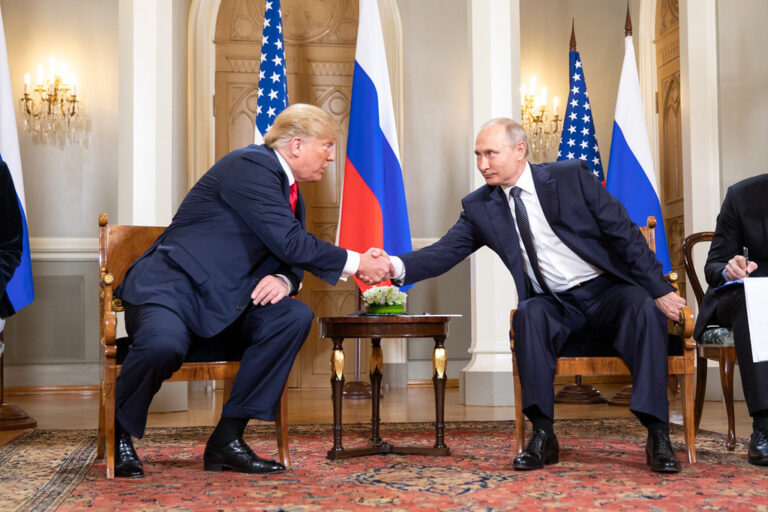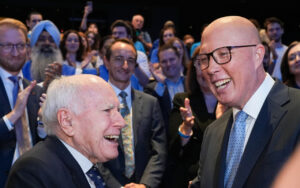The media isn’t being honest about who benefits from Trump’s election.
For months, mainstream media has bombarded us with reports that it would be Russian president Vladimir Putin’s dream for a Donald Trump electoral victory.
They argue that Putin and Trump are close friends, and that Russia will assist Trump’s campaign by targeting voters with malicious misinformation.
This belief stems from Trump’s promise to end the war in Ukraine and pressure Ukrainian President Volodymyr Zelensky to the negotiation table. The assumption is that Trump will halt the aid and military equipment donations to Ukraine, hindering its military effectiveness.
While on the other hand, if Kamala Harris had won last Thursday, then she would continue the arms supply to Ukraine indefinitely. Therefore, many assume Putin would clearly favour four years of Trump over Harris.
However, I believe there is a case to be made that Putin would perhaps actually prefer a Democrat victory.
To begin, since Trump is such a strong proponent of art of the deal and negotiating, he will see the poor state Ukraine is in and how Russia is making daily gains in multiple fronts.
It is unlikely that Trump will want to enter negotiations with Putin from such a weakened position. Trump’s handling of Afghanistan in 2017 serves as a precedent of what could occur.
Running on a campaign promising to end foreign wars and pull United States troops out of Afghanistan, in November 2017 Trump increased the troop count to 14,000 from 11,000 as well as significant ramping up of airstrikes, where in September a record 751 had been conducted.
Trump could deploy a similar approach with Ukraine by surging weapons donations and possibly even easing restrictions on long-range missile strikes on Russian soil to improve Ukraine’s negotiating position.
Conversely, a Harris administration, while certainly maintaining an interrupted flow of arms, would be far more predictable, which in turn simplifies Russia’s military planning.
Another reason the U.S. is unlikely to abandon Ukraine is that it would weaken American influence and erode trust among other allies regarding their own commitments promised from the United States. Nations like South Korea, Japan and Taiwan might see see the trail of broken former American allies like Iraq, Afghanistan and Ukraine as cautionary tales, and potentially viewing reliance American protection as a death sentence.
Furthermore, Trump may leverage his surprisingly positive relationship with North Korea’s Kim Jong Un to weaken the budding Russian-North Korean alliance.
North Korean artillery shells have provided significant support for Russia, South Korean sources estimate 8 million shells have been delivered over the year as well as dozens have ballistic missiles.
In the past month, US, European and NATO officials have reported that up to 12,000 North Korean troops have been deployed to the Kursk region to aid Russia in fighting Ukraine, although Russia has neither confirmed nor denied these claims. Trump has the potential ability to use his relationship with Kim to hamper this military alliance.
Finally, both Russia and China have gained influence in the developing world by appealing to cultural grievances many nations hold against the United States.
Putin and Xi Jinping are advertising their nations as traditional, religious and rational while portraying the U.S. as satanic, anti-religious, non-traditional, woke and a decaying empire.
Following this strategic vector to increase influence, that Russia and China particularly enjoy in Africa and South America, having Kamala Harris in power could continue this trend of the developing world drifting into a Russian and Chinese orbit.
Written by foreign policy graduate Percy Spender, find more of his content on ? @PercySpender
This article originally appeared in The National Observer and is republished by The Noticer with permission.





















